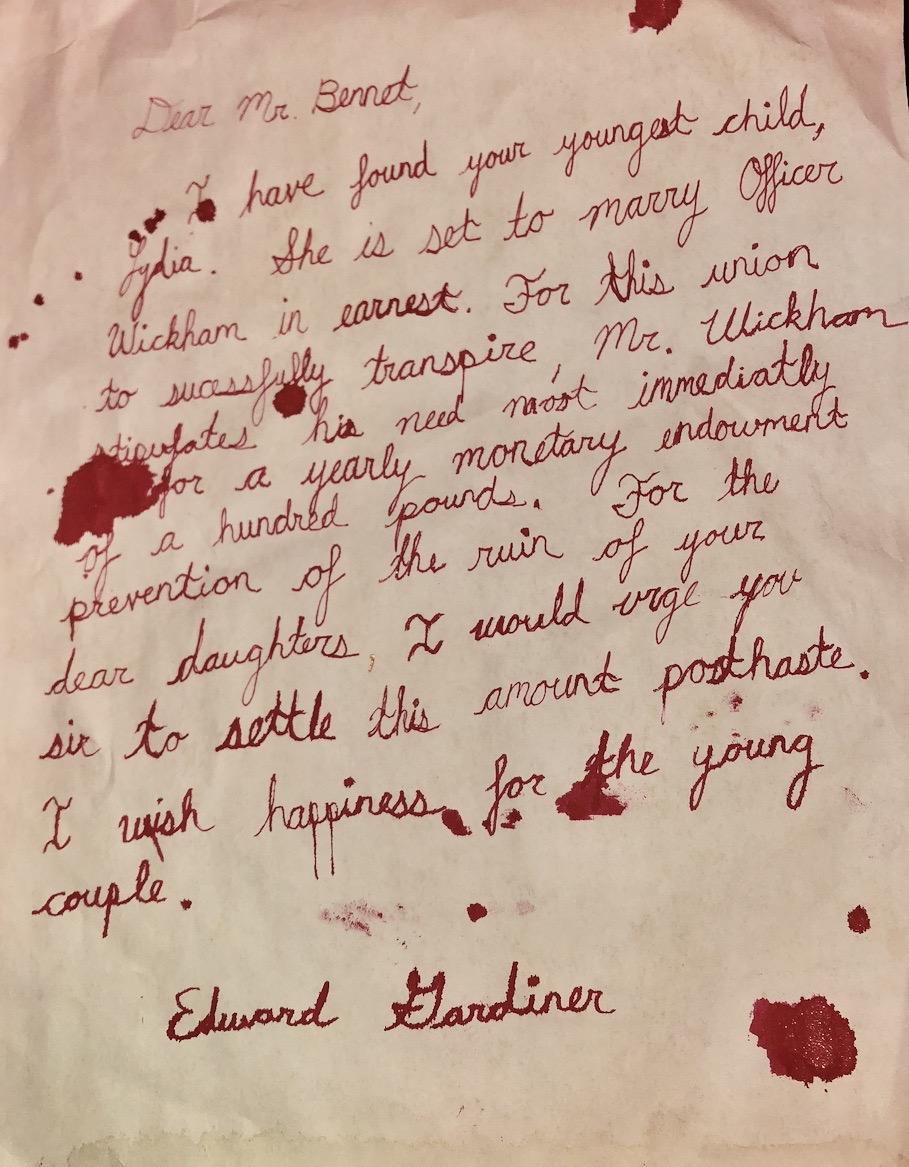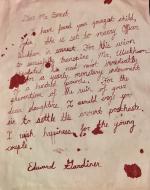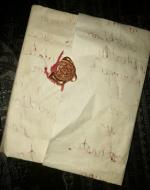Created by Laura Hoffman on Fri, 12/01/2023 - 15:53
Description:
Jane Austen’s Pride and Prejudice (1813) is undoubtedly one of if not Austen’s finest written work. In the novel she quills about poignant social issues of her time, notably the conquest as well as investment that is the institute of marriage in the nineteenth century. In the letter I wrote above I imitated what Mr. Gardiner, the uncle of the Bennet children, likely would have written to Mr. Bennet regarding his apparent aid of the Bennet family in finding young Lydia. Lydia Bennet, whisked away by the deplorable Mr. Wickham, endangers the social status of the entire family by cavorting with a soldier in her unmarried state. If Lydia's impropriety had been found out, her sisters would be ruined in turn due to their familial proximity to her. The letter from Mr. Gardiner to Mr. Bennet illuminates the necessity of Lydia getting married (and thus becoming legitimate) for the Bennet family’s economic survival.
Letter from Mr. Gardiner to Mr. Bennet in Pride and Prejudice (1813), Crafted by Laura Hoffman, 2023. In the letter, Mr. Gardiner conveys to the patriarch of the Bennet family the fact that he has recovered the naive Lydia before she could cause more ruin to the Bennet name through her association with Mr. Wickham. Mr. Gardiner has to write this letter fast, so it could be retrieved by Mr. Bennet as soon as possible--this is because Mr. Bennet needs to immediately put together an endowment at Mr. Wickham's insistance for a hundred pounds, which would be given yearly. If Mr. Bennet did not put aside these funds, Lydia would be known by society as a flousy. Shedding light on the immediate need for action in regards to the correspondence, I kept the contents of the letter short and to the point, rather than long and overstated. Emphasizing the importance and urgency of this piece of writing, in the creation of this letter I purposefully included stray drops of ink throughout the letter, indicating that Mr. Gardiner was writing in the upmost haste.
Sealed letter from Mr. Gardiner to Mr. Bennet in Pride and Prejudice (1813), Crafted by Laura Hoffman, 2023. This image is the same letter in the first photo but folded up and sealed with bronze colored wax. The wax seal is slightly off center, another purposeful choice to again emphasize the haste of sending of this written note, and how that trumped letter making perfection. The sealing of the letter was likely important because the contents of the letter would be embarrassing to the parties involved if read by public society.
Film still of Lydia Bennet in the 2005 screen adaptation of Pride and Prejudice, played by Jena Malone, smiling and removing her gloves, directed by Joe Wright. In this image we see the character of Lydia, who in this version of the film is played by actress Jena Malone. I chose to include in my case a picture from the 2005 film version of Pride and Prejudice because I think that Jena Malone does the best job of playing Lydia out of all the visual adaptations made of Austen's novels. This specific image of Lydia successfully conveys the character's less flattering traits of snottiness and naiveté that she exhibits at her young age. An example of these traits is that after she comes home as a married woman, she flaunts her wedding ring and status as a wife, ignoring or perhaps even ignorant of the fact that her father and other family members had to go to great lengths for their social and economic security due to her mistakes. The photo itself shows the young wife taking off her gloves, which is perhaps the directors way of giving nod to her looseness when it comes to societal rules and standards of Austen's time.




